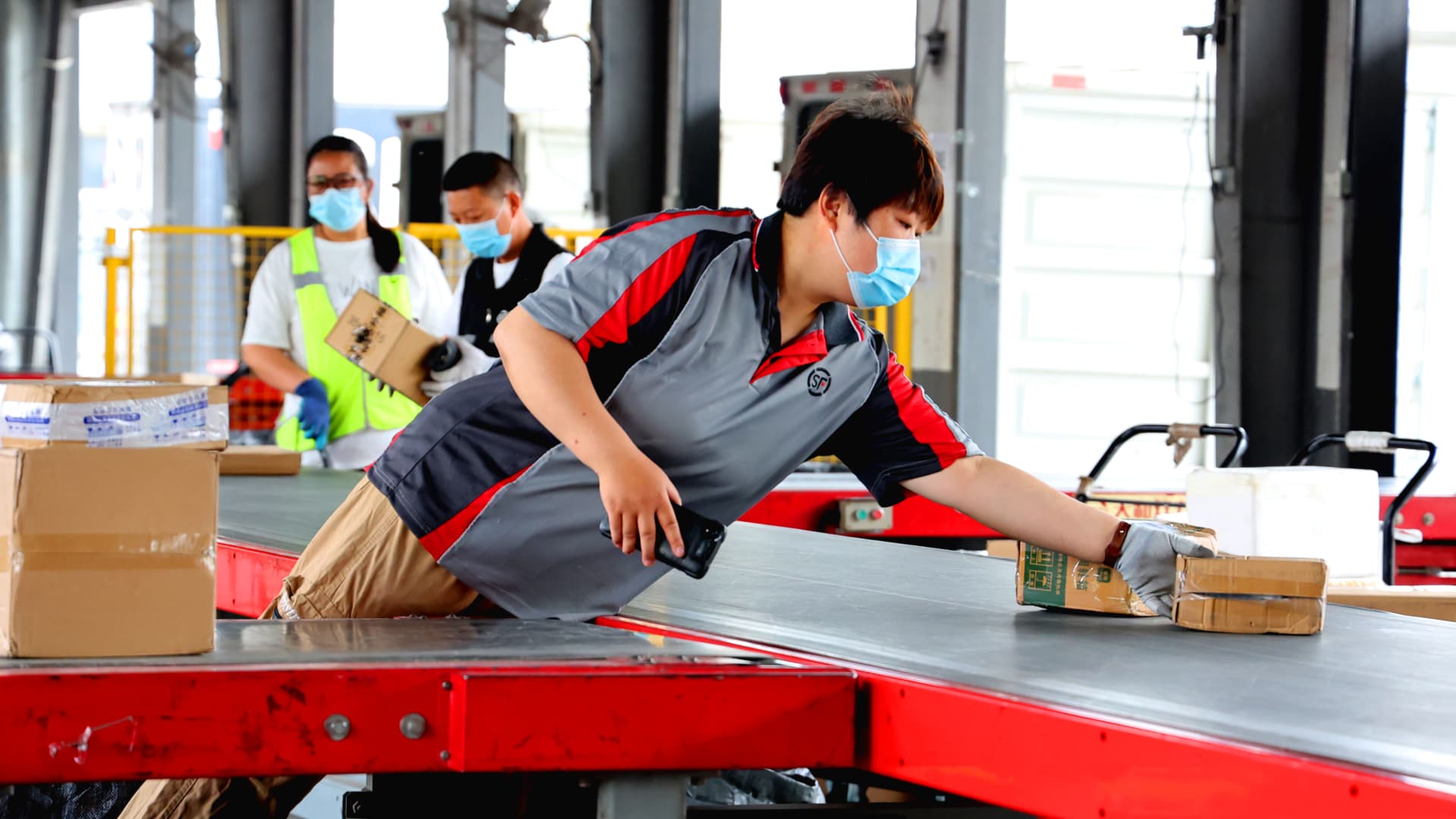China’s multi-billion dollar shopping festival tests e-commerce giants and consumer appetite

China is in the midst of the “618” shopping festival, an annual event where the country’s e-commerce giants like Alibaba and JD.com try to entice shoppers with massive discounts and promotions.
But this year’s edition comes against a tough backdrop as China grapples with the economic fallout from a resurgence of Covid-19, which has led to the lockdown of major cities including the financial powerhouse of Shanghai. Consumer spending has been hit while economists have cut their economic growth outlook for China.
In the first quarter, JD.com and Alibaba, China’s two largest e-commerce companies, posted their slowest revenue growth on record, due to a combination of a slowing economy and intense regulation on the domestic technology sector.
Last year, the transaction volume across major e-commerce platforms totaled 578.5 billion Chinese yuan during the festival, up 26.5% year-on-year, according to data firm Syntun.
Growth is expected to slow this year, however. Consulting firm EY said it expects a 20% increase in sales this year, slower than 2021’s figure. Still Sharry Wu, EY’s Greater China consulting business transformation leader, expects consumers to spend as lockdowns ease and as e-commerce companies look to lure customers in with big discounts.
“Overall, we are confident that the appetite for consumption in China remains strong, but we do expect consumption to be less diversified, with a heavier focus on organic food items, home appliances, personal care, etc,” Wu said in a note.
“As cities reopen, we should expect a huge boost in online consumption, in addition to footfall returning to stores. Although we are seeing a clear trend of downward growth rates for major shopping festivals, every e-commerce platform is presenting its largest promotion scheme ever to attract consumers back online this summer.”
Alibaba and JD.com are both battling to attract consumers. JD is offering shoppers a 50 yuan discount for every qualified 299-yuan purchase.
Alibaba’s online shopping platform Tmall said it was freezing the price of 19 million products until July 5. The company’s bargain shopping platform Taobao Deals has a million 10 yuan items on offer.
Still, not all analysts have a rosy outlook. Jacob Cooke, CEO of WPIC, an e-commerce tech and marketing firm that helps foreign brands sell in China, said that this year’s 618 is unlikely to be setting records in terms of sales.
“This is probably the first year that we will see this [sales] down,” Cooke told CNBC.